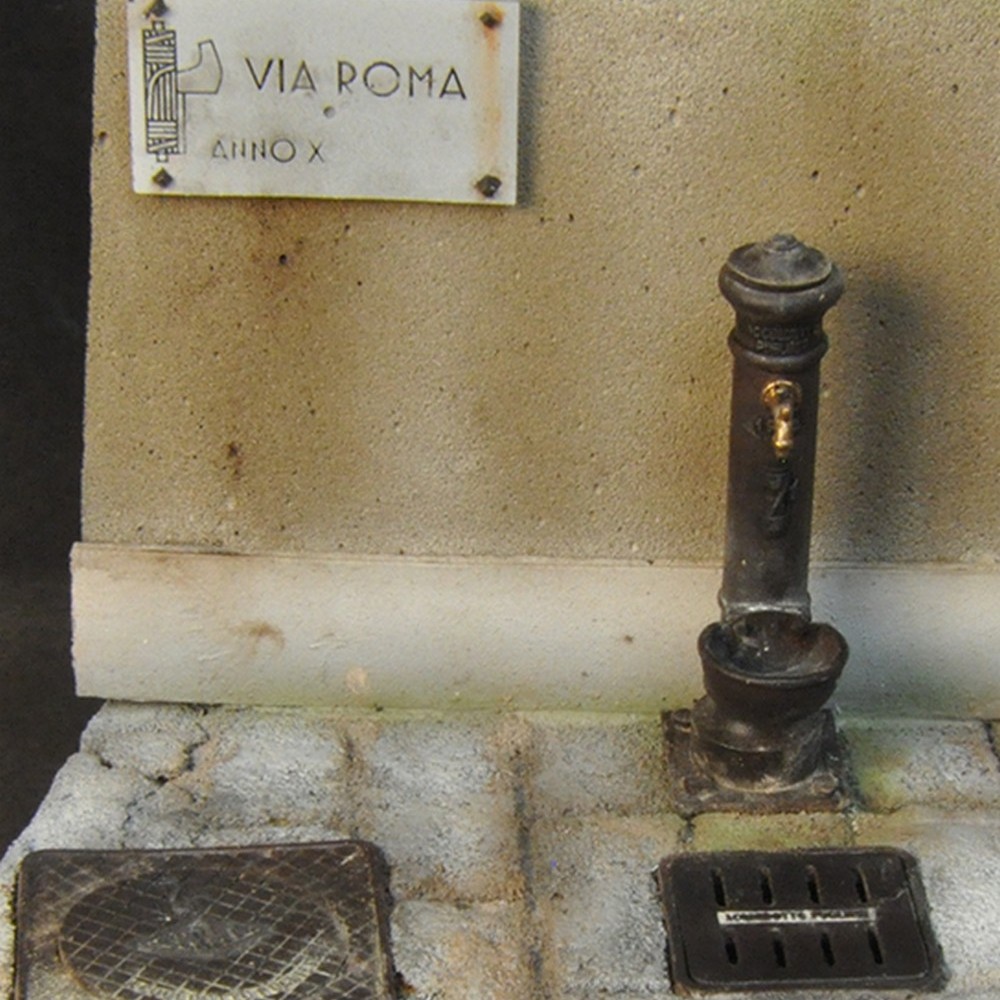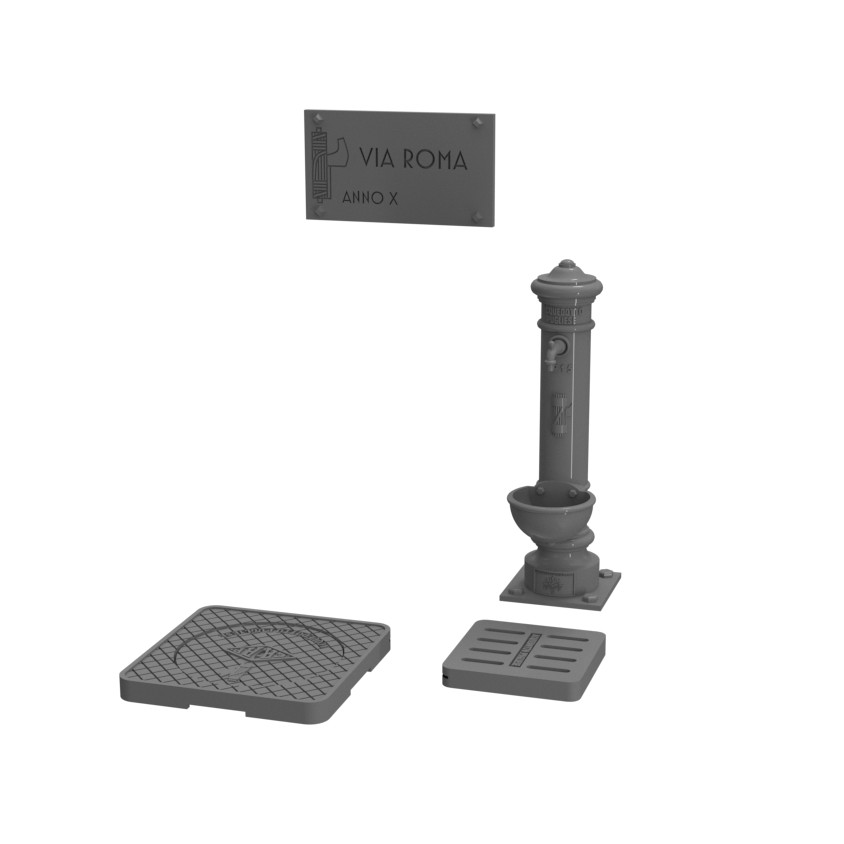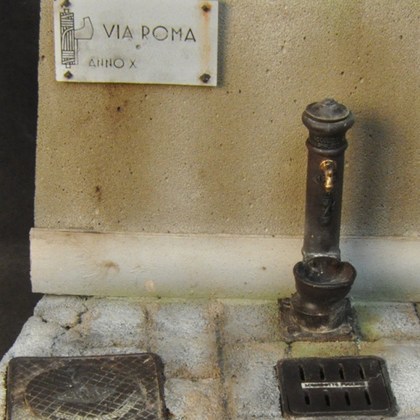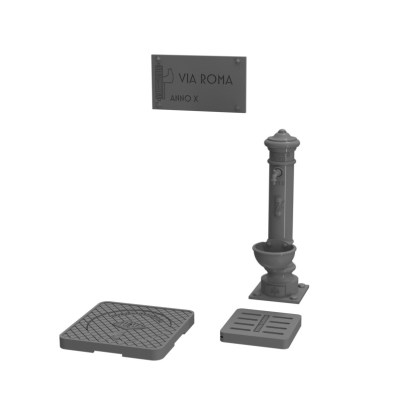Third set dedicated to drinking fountains; in this case we move to the south specifically to Puglia. It consists of four objects:
No. 1 fountain
No. 1 street plaque
N°1 manhole cover
N°1 manhole
These objects were entirely designed from scratch and highly detailed as in our company's style.
The fountain is composed of four resin elements, the cap is removable as in reality to give wide possibility of customization, the manholes, as in our standard, are extensively detailed with casting marks and openable.
Apulian Aqueduct
The Apulian Aqueduct is the public drinking-water supply infrastructure of the Apulia region and some municipalities in Campania.
Its construction, strongly desired by, among others, Antonio Jatta, was started in 1906, with the intention of solving the age-old problem of water shortage in the region: already Horace described Apulia as a thirsty land: siderum insedit vapor siticulosae Apuliae (the sultriness of the Apulia sitibonda reaches the stars)
In fact, since the Apulian subsoil is not rich in easily extractable water, rainwater collected in cisterns has always been used, which did not guarantee sufficient quantities and the necessary prevention from epidemics.
The work was advocated by a number of Apulian deputies who obtained the creation first of a study commission, which was followed by the financing and awarding of the work in concession, following an international tender.
The realization of the work was possible thanks to the use of substantial financial means (125 million liras at the time) and materials, so there was no shortage of those who predicted its unfeasibility.
During Fascism, other trunks were built to serve areas not yet reached by the aqueduct: among them, the main one is called Grande Sifone Leccese and is the extension of the main canal up to the monumental waterfall that ends in the sea, occasionally used as the terminal outlet of the great aqueduct work, built at the foot of the sanctuary of Santa Maria di Leuca, the last offshoot of Salento. The terminal work was inaugurated just before the beginning of World War II by Benito Mussolini himself, who donated the Roman column installed along the descent to the sea for the occasion.

3D modeling company
production and printing of items for modeling.
Own production and work for third parties.
3D scans
Sales and assistance Professional and production 3D printers
High experience in the 3D world







